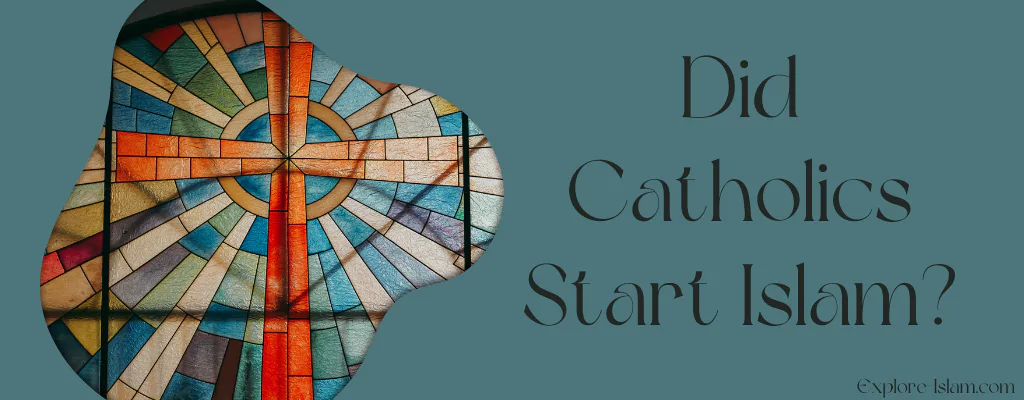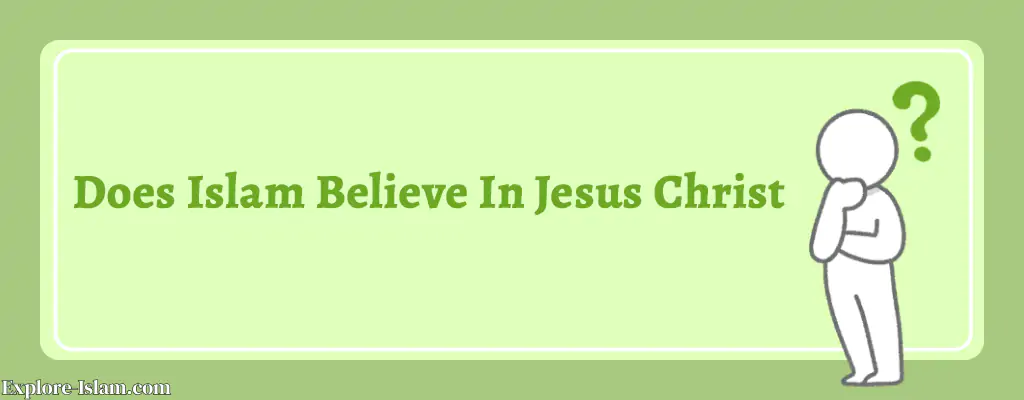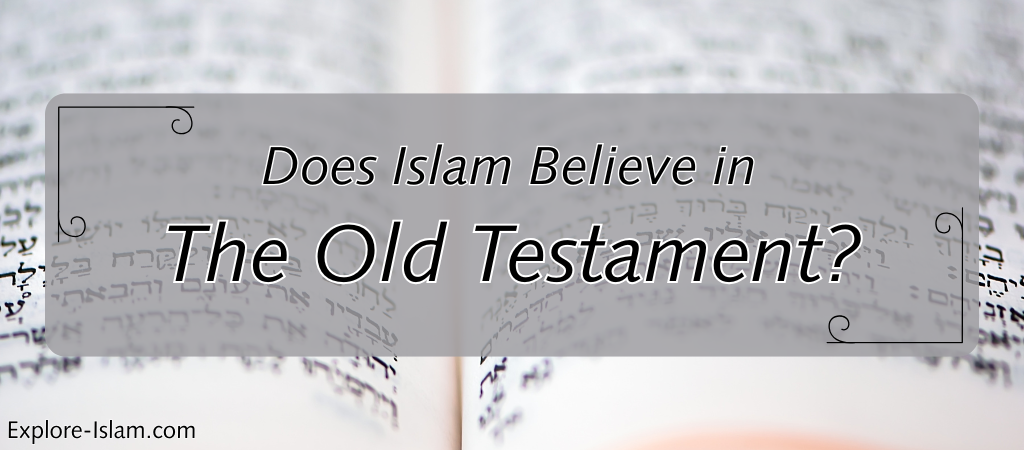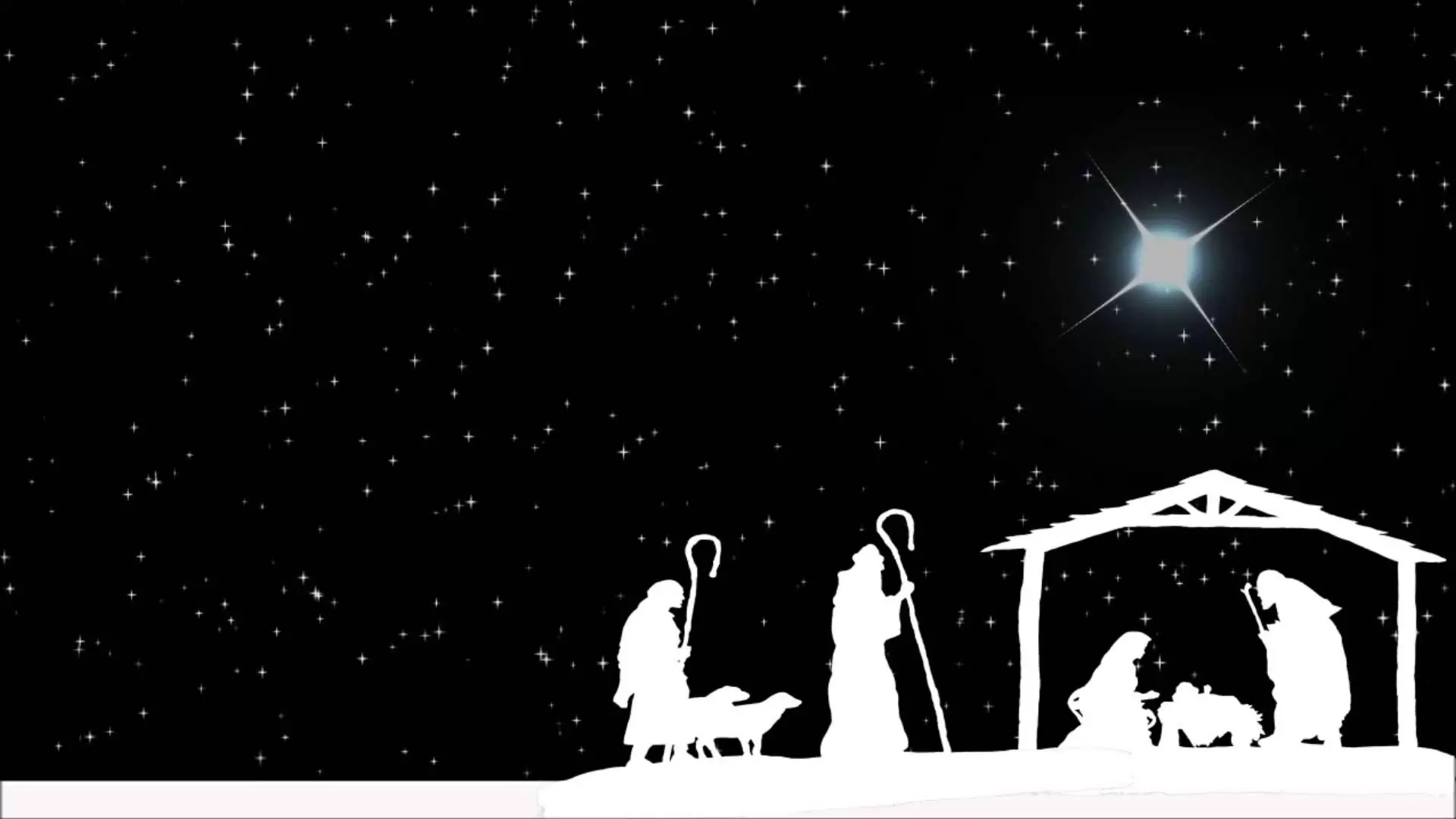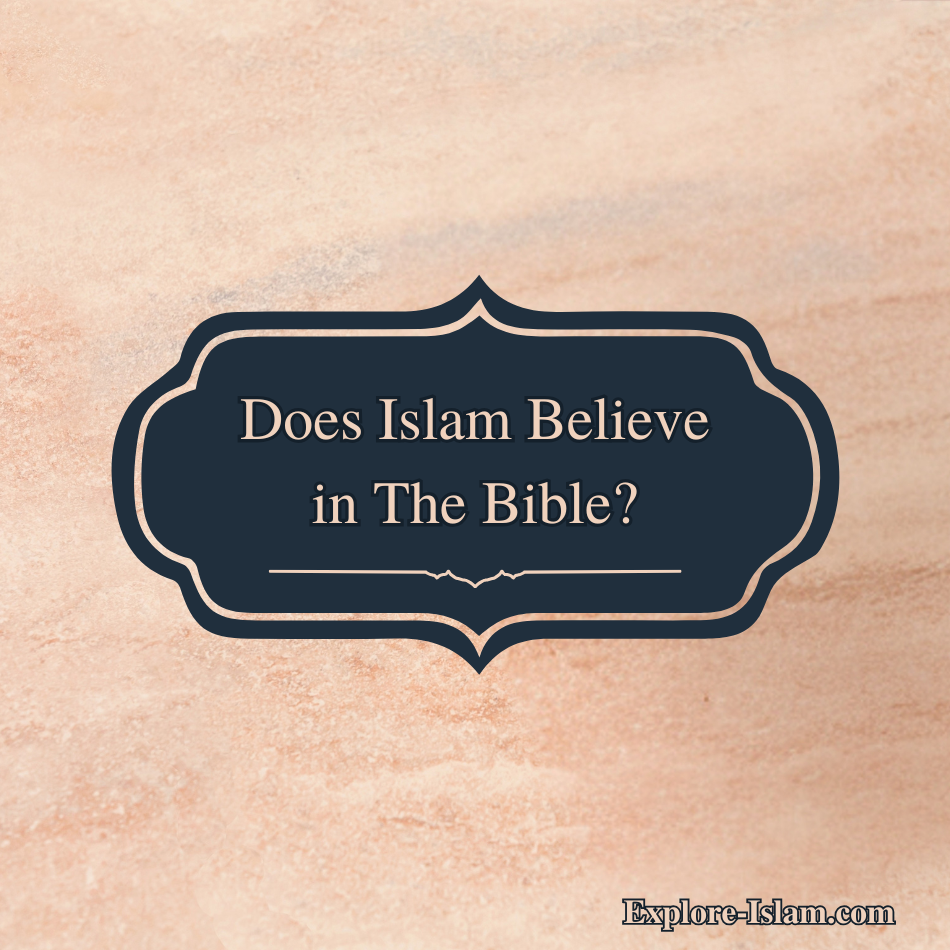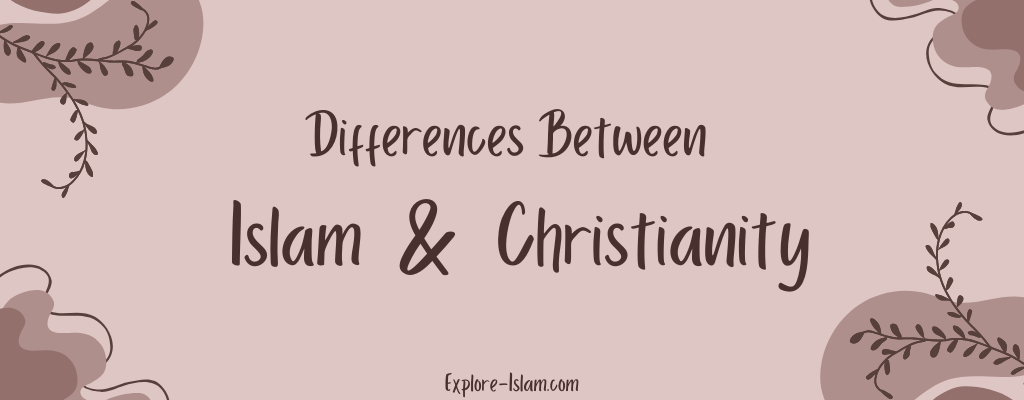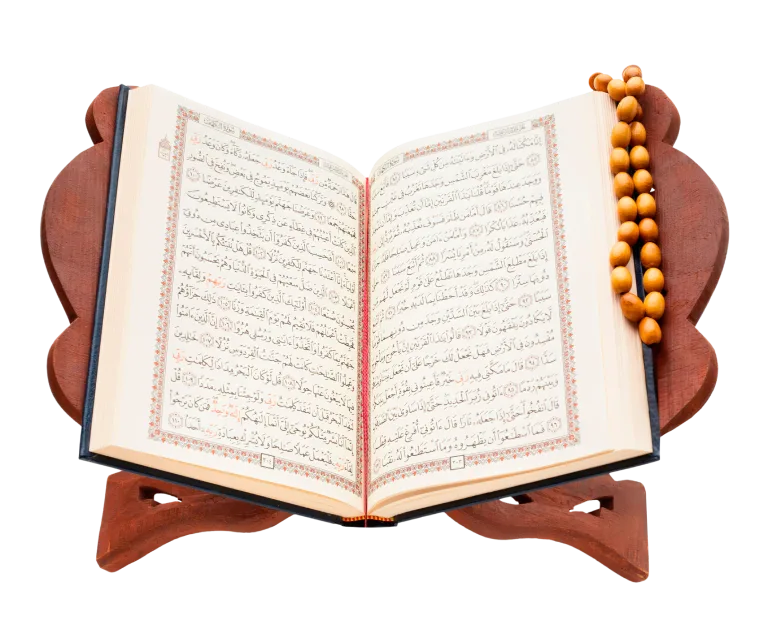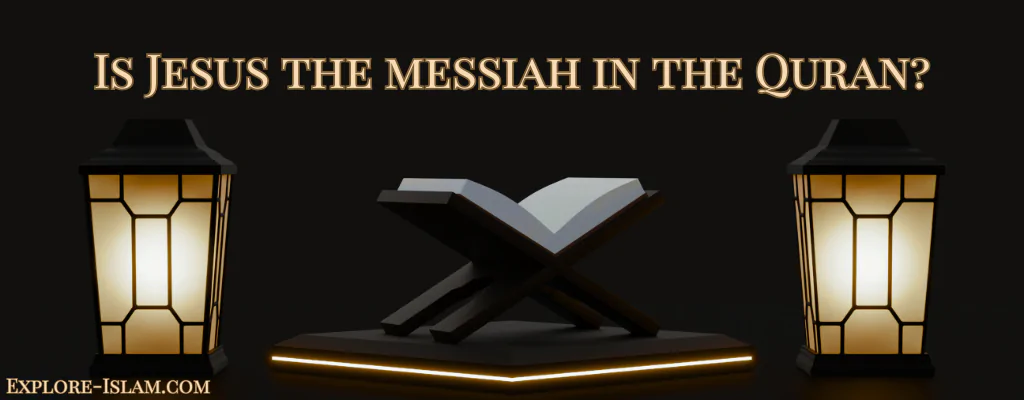In a Nutshell: The claim that the Catholic Church created Islam is unfounded. Islam originated independently in the 7th century through Prophet Muhammad (peace be upon him), with beliefs rooted in monotheism. While Islam and Christianity share Abrahamic roots, the idea that one influenced the other is based on misconceptions and historical conflicts. IN a Nutshell: The claim that the Catholic Church created Islam is unfounded. Islam originated independently in the 7th century through Prophet Muhammad (peace be upon him), with beliefs rooted in monotheism. While Islam and Christianity share Abrahamic roots, the idea that one influenced the other is based on misconceptions and historical conflicts.
It is common knowledge that Islam, on one hand, originated in the 7th century CE with the Prophet Muhammad (peace be upon him) in the Arabian Peninsula. The Catholic Church, on the other hand, is a Christian institution that traces its origins to the time of Jesus Christ and the apostles in the 1st century CE. It, then, became a major religious and political force, especially in the Mediterranean area after the establishment of the Roman Catholic hierarchy.
However, there has been an unpopular claim made by some Western historians and Orientalists that the Catholic Church made Islam. In this article, we will examine why this claim was adopted and what makes it a false claim, with tangible pieces of evidence. We will also explore some big similarities and fundamental differences between Catholicism and Islam and shed light on the reasons why these similarities and differences are there.
Here we will learn the following:
Did The Catholics Start Islam?
The claim that the Catholic Church started Islam is a baseless theory without historical evidence. Islam originated independently in the 7th century CE through the Prophet Muhammad (peace be upon him) in the Arabian Peninsula. Its foundational teachings, rooted in the Quran, emphasize monotheism, distinct from the doctrines of Christianity.
While Islam shares some similarities with Catholic Christianity, such as belief in prophets and charity, these are common elements derived from shared Abrahamic traditions rather than evidence of one originating the other.
The theory of “Catholic Church Started Islam” has arisen from misunderstandings, propaganda during medieval conflicts, or conspiracy theories among Christian sects. Historically, the Catholic Church and Islamic states often engaged in conflict, notably during the Crusades, which undermines the notion of collaboration.
Prophet Muhammad’s illiteracy and the absence of Arabic translations of Christian texts during his time make it implausible that Islam was derived from Christianity. This claim, lacking credible support, is more reflective of historical biases than factual history.
Unreliable Historians Behind the Theory
First of all, those who say that the Catholic church made Islam are only unreliable historians and untrustworthy academic bodies. Most reliable historians, objective Orientalists and academic entities are just enough to say that this view is incorrect and lacks all kinds of evidence.
But why did these unreliable Orientalists and academic bodies adopt such an unauthentic view? There are several reasons for this. Let’s explore some of them.
They argue this due to misconceptions and biases. Early misunderstandings linked Islam to Unitarian Christians, who opposed the Trinity and were deemed heretical by the Catholic Church.
During the Crusades, such claims were used to undermine Islam and assert Christian dominance. Additionally, some conspiracy theories suggested the Catholic Church created Islam to extend its influence in the East.
These views lack historical evidence and are rooted in attempts to discredit both Islam and Catholicism.
Did The Catholic Church Start Islam?
Claims that Islam was shaped by the Catholic Church stem from misconceptions, historical conflicts, and shared Abrahamic roots, but Islam’s origins are uniquely independent and divinely revealed.
Let’s discuss these points in detail:
1- shared monotheistic ideas. Post-Nicaea:
Early Islamic narratives were falsely tied to Catholic doctrines due to shared monotheistic ideas. Post-Nicaea, Unitarian Christians faced persecution for rejecting the Trinity, fueling misconceptions about Islam’s origins.
Trinitarians who used to accuse Unitarians of being heretical also claimed that the doctrine of Islam is heretical, simply because Muslims also believe in the absolute oneness of God [Allah], the human nature of Jesus Christ [Peace be upon him], and that he was only a messenger of God. So they viewed Islam as just another sect of Unitarianism.
This view is completely baseless since Islam is a totally new religion established in the heart of the Arabian desert and its messenger [Prophet Muhammad (peace be upon him)] was an illiterate Arab man who had no contact with the previous Scriptures.
Islam just happened to have some similarities with previous theologies [both Judaism and Christianity] when they were still mainly uncorrupted.
2- Crusade Wars Against The Muslim World Tried To Force This Unauthentic View:
During the medieval era with the spread of Islam and especially after the Islamic conquests in the East and the West, there was an ongoing conflict between the Western Christian world and the Islamic world. As a result, many interpretative theories emerged that sought to understand the rise of Islam through the lens of this conflict. In some cases, it was believed that the Catholic Church played a role in the “creation” of Islam, as part of these religious wars.
The Crusades tried to make Muslims look like only followers of their path and not owners of a completely new religion that competes with theirs. Again, this was only a way to defeat Muslims morally and to make Western Christian leaders look more powerful and dominant before their masses, in an attempt to capture a land that is not theirs [the Levant including Jerusalem].
After more than 200 years of bloody wars between the invaders [the Crusades] and Muslims [the indigenous people], the former were defeated and Muslims restored their lands.
3- Christians Fuel The Myth That Islam Originated From Catholicism:
This theory relates to the previous point but focuses on internal divisions within Christianity. Specifically, it involves accusations made by Western Christian sects against the Catholic Church.
These Western churches claimed that the Catholic Church, which held significant influence across much of the Mediterranean region—including the Levant, Egypt, and other Eastern Mediterranean lands—was responsible for starting Islam. This accusation suggests that the Catholic Church allegedly created Islam to extend its power in the East and weaken the influence of Western Christian sects, such as the Protestant and Orthodox churches.
Some Orientalists, mainly from the West, have perpetuated this idea, viewing it as a way to undermine both Catholicism and Islam simultaneously—a case of “hitting two birds with one stone.”
This view cannot be true, simply because there were already bloody wars between the Eastern Church (The Catholic Church) and Islam at its beginning. For instance, they clashed over control of regions like the Levant, Egypt, and Northern Africa, which Islam eventually dominated. These wars clearly indicate that Islam was not a creation of the Catholic Church but rather an independent religion that arose in Arabia.
4- Did Prophet Muhammad Was Jealous of Jesus?
The claim that Muhammad felt jealous of Jesus, is often found in some non-mainstream interpretations of Islamic history. It suggests a rivalry between the two figures, with Prophet Muhammad (peace be upon him) allegedly seeking to create a religious movement that could rival Christianity’s prominence. It simply implies a psychological or emotional motivation behind the development of Islam.
Why Cannot This View Be True?
There are so many reasons why this view cannot be true. These are logical and historical facts, rather than psychological or emotional claims. Let’s examine just a few of these reasons.
A- The Emphasis On The Oneness Of Allah In The Quran:
In countless sections, the Quran definitely stresses the idea of the absolute oneness [Tawheed] of Allah and that Muhammad is only a messenger of God.
A powerful evidence of Tawheed, which is derived from the Quran and the Sunnah [the life and teachings of Prophet Muhammad (peace be upon him)], can be found in the events of the Battle of Uhud (625 CE) where Prophet Muhammad (peace be upon him) was injured by the non-believers.
He said: “How can any people prosper if they soak the face of their Prophet with blood when he is calling them to Allah?” Then, Allah revealed in the Quran: “Not for you is the decision.”
This is an unmistakable clarification by Allah that the Messenger’s mission is only to deliver the Message and that guidance, forgiveness, and punishment are issues that Allah only deals with. So this verse is a reminder of the limits of human agency [even if this human is Prophet Muhammad (peace be upon him)] and the ultimate sovereignty of Allah over all things.
B- The Bible Was Only Translated Into Arabic 200 Years After The Death Of Prophet Muhammad:
The Bible was only translated into Arabic in the 8th century CE [that is about 200 years after the death of Prophet Muhammad (peace be upon him) who was an illiterate man who spoke only Arabic]. This translation was done by Christian scholars in the Arab world. A more complete and systematic translation of the entire Bible into Arabic was done later in the 16th century CE.
Before that date, the Bible was only in Greek and Hebrew. So it was impossible for a Bedouin illiterate Arab man [Muhammad (peace be upon him)] who lived in the middle of the Arabian desert, far away from the clergymen in the Levant and who was only speaking Arabic, to know what was written in older scriptures and fabricate a new religion based on the information written in other languages which he was completely ignorant about.
C- The Non-Divinity Of Prophet Muhammad In Islam:
Unlike Jesus in the Christian methodology, Muhammad is not divine in Islam. He is only a Messenger of God. So the main focus in Islam is Allah and not a human, even if he was Prophet Muhammad (peace be upon him), upon whom the Message of Islam was revealed.
To name but a few, Allah says in the Quran:
“Say, ˹O Prophet,˺ “I am only a man like you, ˹but˺ it has been revealed to me that your God is only One God. ”
This idea of the divinity of Allah alone is also evident in the first Chapter of the Quran (Al-Fatiha) which all Muslims must understand and recite so that their daily prayers are valid. The concept that all the worship, glorifying, praising, and asking for help must be directed to Allah alone, is emphasized in this chapter. That is the essence of monotheism. This idea is highlighted in the middle verse of this chapter:
“You ˹alone˺ we worship and You ˹alone˺ we ask for help.”
This verse conveys the Islamic concept of complete devotion and reliance on Allah alone, without any partners or intermediaries. So here, just as worship is only dedicated to Allah, seeking help is only sought from Allah.
D- The High Status Of Jesus In Islam:
In Islam, Jesus Christ [peace be upon him] is viewed not in rivalry with Muhammad [peace be upon him], but as part of a continuum of prophets, where he is highly revered as the Messiah who was miraculously born from a virgin mother, and a messenger sent to the Children of Israel, and will have a second coming before the Day of Judgment to kill the Anti-Christ and spread justice and peace. However, in Islam, Jesus is not divine, he is not the Son of God, and he has not been crucified.
It is noteworthy that Christians believe that the Old Testament is one of God’s Holy Books. Ironically, Jesus In the eyes of the Jews was not the awaited Messiah. They believe that the Messiah has not yet come. Jews generally reject the idea that Jesus was born of a virgin and consider that he was born to Mary and Joseph as a normal human birth. They also believe he received his due punishment in this world [by crucifixion by their own hands].
So it is quite clear that, unlike the Jews, Muslims give a high prestigious status to Jesus. In addition, any Muslim who does not believe Jesus was one of the Mighty Prophets of Allah, or speaks ill of him, is not considered a Muslim to begin with.
E- Muhammad Reaffirmed His Non-Divinity Before His Death:
It is narrated that the Messenger of Allah (peace be upon him) said: “Do not praise me as the Christians praised “Eesa ibn Maryam” [Jesus Christ, the son of Mary – peace be upon him]. I am no more than a slave, so say: Allah’s slave and His Messenger.”]
So here, Prophet Muhammad (peace be upon him) clearly urged and commanded all Muslims not to praise him as the Christians praised Jesus, the son of Mary. Rather, they must always refer to Prophet Muhammad (peace be upon him) as the servant and Messenger of Allah.
5- Viewing Islam as a Rival Religion to Undermine in Modern Times
During the colonial era by the Western powers in the 19th and 20th centuries, some Western Orientalistic studies adopted some assumptions that aimed at demolishing Islam as if it only emerged from Christianity.
They tried to strip the independence of Islamic culture, heritage, and history, and make it more and more dependent on the Western culture, religion, and schools of thought, in an attempt to overpower the Muslim countries under their control.
6- Similarities Between Catholicism and Islam Fuel Unauthentic Views:
Some Western historians think that the Catholic Church made Islam because there are some similarities between both religions, such as the belief in God, in prophets, in the Hour, in the Day of Judgment, etc.
So they take these similarities as a justification that Islam was heavily influenced by Christianity and thus was made by the Catholic Church.
Why Are There Some Similarities Between Catholicism And Islam?
From an Islamic point of view, the three main Abrahamic religions [Judaism, Christianity, and Islam] have some big similarities, simply because the source is the same: Allah, Almighty. Prophets Moses, Jesus, and Muhammad as well as Prophet Abraham before them (peace be upon them all) received Revelation from the same source: Allah. That’s why their doctrines have some basic similarities.
However, after the times of Moses and Jesus, their books have been greatly manipulated. So the books of Judaism and Christianity (Old and New Testaments) that are available today have gone through various kinds of corruption (addition, omission, missing (either deliberately or as a result of bad memory of some rabbis and priests).
However, what is left completely intact and unchanged is the Quran (the book of Islam).
In this regard, Allah says:
“We have revealed to you ˹O Prophet˺ this Book with the truth, as a confirmation of previous Scriptures and a supreme authority on them.”
What makes the Quran “a supreme authority” on the previous Scriptures is that it is preserved till the Day of Judgment, with no change or corruption whatsoever.
That’s why the Quran has some similar ideas to the Old and New Testaments’. However, the Quran corrects a lot of misconceptions and pieces of misinformation mentioned in these older Scriptures. Let’s now examine some similarities and differences between Catholicism and Islam.
Read more about this topic: “Similarities Between Catholicism And Islam”.
Conclusion:
The idea that the Catholic Church created Islam is a false theory with no historical basis. Islam began in the 7th century CE with Prophet Muhammad (peace be upon him) in the Arabian Peninsula, rooted in monotheism and teachings distinct from Christianity. While both religions share common elements, such as belief in prophets and charity, these similarities come from their shared Abrahamic roots, not from one religion originating the other.
This theory mostly arose from medieval conflicts and misconceptions, especially during the Crusades, where Christian and Muslim forces clashed, contradicting any notion of collaboration between the two.
The claim is also unsubstantiated by facts. Prophet Muhammad was illiterate, and there were no Arabic translations of Christian texts during his time, making it impossible for him to have drawn from Christianity.
Moreover, the historical struggles between the Catholic Church and the Islamic state, including battles for control of territories like the Levant and Egypt, further refute this idea. Rather than being a product of Catholicism, Islam is an independent religion with its own revelations and teachings, preserved in the Quran, which has remained unchanged since its revelation.

